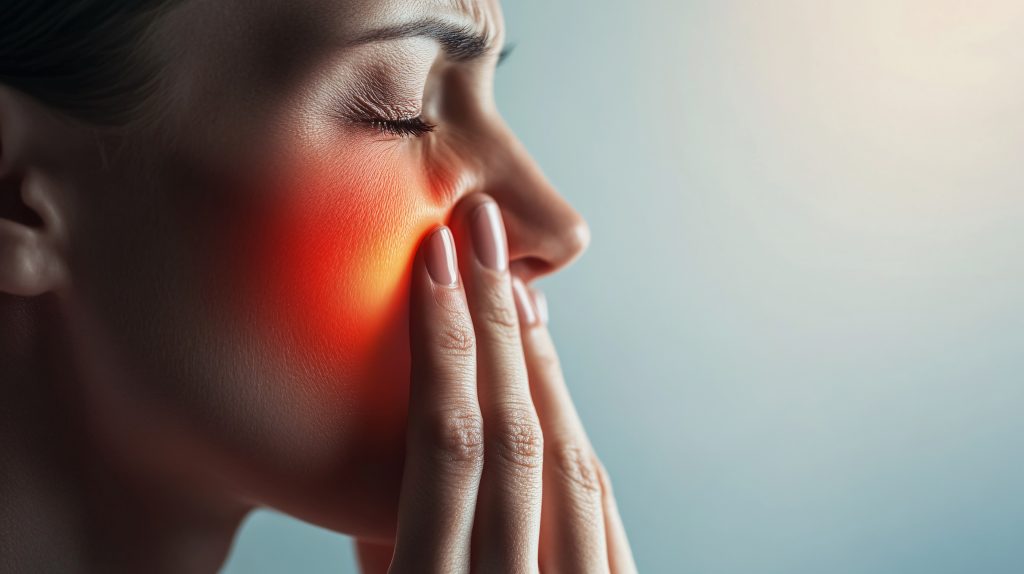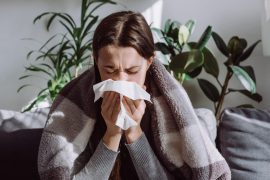Winter is a season of cosy sweaters and warm beverages, but for many people, it also brings unwelcome sinus troubles. If you’re someone who suffers from chronic sinusitis, the cold season can feel especially challenging. The colder months often aggravate sinus symptoms, making it harder to breathe comfortably and enjoy the season. Managing sinusitis effectively during this time is essential for better health and quality of life. Let’s understand what chronic sinusitis is, why it worsens in winter, and the steps you can take to manage it.
What is Chronic Sinusitis?
Chronic sinusitis is a condition where the lining of your sinuses stays inflamed for three months or longer, even with treatment. This inflammation blocks the normal drainage of mucus, leading to nasal congestion, difficulty breathing, and other uncomfortable symptoms. [1] Unlike acute sinusitis, which clears up quickly, chronic sinusitis can persist or recur, often requiring consistent management to keep symptoms at bay.
Why Cold Weather Aggravates Sinusitis
Cold weather can worsen chronic sinusitis for several reasons:
- Dry Air: Winter air is often dry, which can irritate the sinus lining and make it harder for mucus to drain.
- Temperature Changes: Moving between warm indoor spaces and the cold outdoors can cause blood vessels in your nasal passages to expand and contract, leading to sinus pressure and congestion.
- Increased Allergens: Dust mites, mold, and other indoor allergens can become more prominent during winter as we spend more time indoors.
- Weakened Immune System: The cold season often brings colds and flu, which can trigger or worsen sinus symptoms.
Understanding these factors can help you take preventive measures to minimize flare-ups during the colder months.
Common Symptoms of Chronic Sinusitis in Winter [2]
If you’re dealing with chronic sinusitis during the cold season, you might notice symptoms such as:
- Persistent nasal congestion or a blocked nose.
- Facial pain or pressure, especially around the eyes, cheeks, and forehead.
- Thick nasal discharge that may be yellow or green.
- Reduced or complete loss of sense of smell.
- Headaches or a feeling of heaviness in the head.
- Coughing, this often worsens at night.
- Fatigue and a general feeling of discomfort.
These symptoms can interfere with daily life, making it important to address them early.
Preventive Measures to Minimize Sinusitis Flare-Ups
- Stay Hydrated: Drink plenty of water to keep mucus thin, making it easier for your sinuses to drain.
- Use a Humidifier: Adding moisture to the air can stop your sinuses from drying out and becoming irritated.
- Avoid Sudden Temperature Changes: Don’t rush from cold to warm environments or vice versa; transitioning gradually can help prevent sinus irritation.
- Keep Your Space Clean: Dust and mold can worsen sinus issues, so make it a habit to regularly clean your home.
- Wash Your Hands Often: Good hygiene helps keep colds and infections at bay, which can trigger or worsen sinusitis.
With these simple habits, you can give your sinuses some much-needed relief this winter!
Home Remedies for Managing Sinusitis Symptoms
Simple home remedies can provide much-needed relief from sinusitis symptoms:
- Steam Inhalation: Breathing in steam can help open up nasal passages and reduce congestion. Add a few drops of essential oils like eucalyptus for extra relief.
- Saline Nasal Spray: Using a saline solution to rinse your nasal passages can help keep your sinuses moist and remove irritants.
- Warm Compress: Applying a warm compress to your face can ease facial pain and reduce sinus pressure.
- Stay Warm: Protect your head and nose from cold air by wearing a scarf or hat when outdoors.
Lifestyle Changes for Better Sinus Health
- Eat a Balanced Diet: Include foods rich in antioxidants and vitamins to boost your immune system.
- Exercise Regularly: Moderate exercise can improve blood circulation and reduce sinus pressure.
- Quit Smoking: Smoking irritates the nasal passages and worsens sinusitis. Avoid exposure to secondhand smoke as well.
- Get Adequate Sleep: Rest helps your body recover and strengthens your immune system, reducing the likelihood of sinus infections.
Advanced Treatments for Severe Cases
If chronic sinusitis persists despite trying other treatments, advanced options may be necessary. These could include:
- Balloon Sinuplasty: A minimally invasive technique to clear clogged sinuses and improve drainage.
- Endoscopic Sinus Surgery: This surgical option removes blockages or polyps to restore normal sinus function.
While these treatments are effective, they are usually recommended only when other methods fail to provide relief.
When Should You See a Doctor?
Sometimes, sinusitis symptoms can go beyond what you can manage at home. It’s a good idea to seek medical advice if you notice:
- Severe pain or swelling in your face.
- A high fever that just won’t go away.
- Symptoms lingering for more than 12 weeks.
- Changes in vision or confusion might signal a more serious issue.
- Repeated sinus infections even after trying preventive measures.
If any of these sound familiar, don’t wait. A doctor can help you figure out what’s going on and guide you toward the best treatment plan.
Conclusion
Managing chronic sinusitis during the cold season may feel overwhelming, but with the right approach, you can reduce symptoms and enjoy a more comfortable winter. From preventive measures and home remedies to advanced treatments, there are plenty of ways to protect your sinuses and maintain good health.
References:
[2] https://www.mayoclinic.org/diseases-conditions/chronic-sinusitis/symptoms-causes/syc-20351661





Comments are closed.